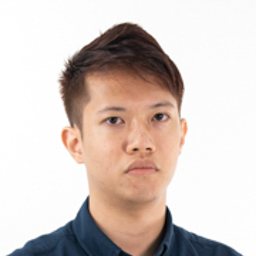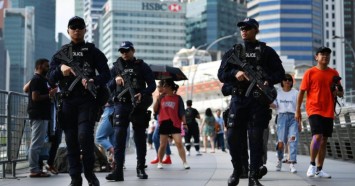Rehabilitation for self-radicalised Singaporeans must go beyond Islamic religious counselling: PM Wong
https://www.asiaone.com/singapore/rehabilitation-self-radicalised-singaporeans-must-go-beyond-islamic-religious-counselling?utm_source=a1home&utm_medium=referral&utm_campaign=A1+trending&utm_content=c1
Rehabilitation for self-radicalised Singaporeans must go beyond Islamic religious counselling: PM Wong

Given that Singaporeans can be self-radicalised by a wider range of extremist ideologies, the country’s rehabilitation capabilities have to be more than just Islamic religious counselling, Prime Minister Lawrence Wong said on Saturday (Sept 13).
Speaking to 400 guests which included members of the Religious Rehabilitation Group, Inter-Agency Aftercare Group, mosque leaders and community volunteers, PM Wong noted that threats to Singapore’s security have evolved beyond those posed by the Jemaah Islamiyah (JI) network some 20 years ago.
“Furthermore, the range of extremist ideologies has widened. It's no longer limited to religious extremism,” he said, adding that there are instances of Singaporeans drawn to Neo-Nazi movements or the incel subculture, known for its extreme resentment and hostility towards women.
The Internal Security Department (ISD) said on Sept 9 that a 14-year-old boy, who was given a restriction order under the Internal Security Act (ISA), is the first self-radicalisation case involving a "salad bar" of ideologies.
He supported ISIS, far-right and far-left extremism, communism, and hated women and Jews.
18 youths aged between 14 and 20 years have been dealt with under ISA since 2015, with more than two-thirds of them in the last five years.
Of Roblox and Discord
Besides flagging the growing diversity of extremist ideologies, ISD in this year’s Singapore Terrorism Threat Assessment Report also raised concerns by the increasing variety of online platforms used by youth in self-radicalisation cases — including gaming platforms such as Roblox and Discord.
Prime Minister Lawrence Wong pointed out that the recent murder of US right-wing activist Charlie Kirk showed how easily online radicalisation can translate to real-world harm.
“Acts of violence that were once rare have become disturbingly more commonplace, he said.
PM Wong said that Singapore has started to strengthen its rehabilitation capabilities that are “specifically tailored for self-radicalised youths”.
These include mentorship, cyber wellness and programmes to improve their social skills.
PM Wong said that it has led to encouraging results, highlighting the case of a 16-year-old Singaporean who was detained in December 2020 after he was self-radicalised by right extremism propaganda and had planned to attack Muslims at two mosques. He was released in January 2024.
“He received counselling from a Christian pastor who taught him the virtues of non-violence and to appreciate inter-faith harmony,” he said. “At the same time, he had two mentors, including a volunteer from the Religious Rehabilitation Group who provided him with social support and guidance.”
PM Wong also warned of the need to remain vigilant against extremist ideologies.
“If you see a loved one succumbing to extremist ideologies, please help to report them early so that they can receive help,” he said. “I know it's not easy. I too, have friends who have gone astray.
“I knew them when they were younger, and I would never have expected them to turn to extremism. But these things can happen, and when they do, we want to be able to act early and help them get back on the right path as soon as possible.”
PM Wong pays tribute to pioneer community volunteers
In his speech at the annual appreciation lunch hosted by the Ministry of Home Affairs, PM Wong thanked the volunteers for their contributions and support to the ministry’s counter-terrorism rehabilitation and social reintegration programmes.
He said that Singapore was fortunate that pioneers, such as Islamic religious teachers Ustaz Mohamad Hasbi Hassan and the late Ustaz Ali Haji Mohamed, had “bravely stepped forward to help” 20 years ago when the country was dealing with the JI threat.
“It was a bold and unprecedented approach to rehabilitation and the outcomes were uncertain,” said PM Wong. “They risked being criticised, branded as munafiq, or hypocrites, for working with the Government.
”Because of all of your courage and conviction, Singapore is safer today.”
PM Wong said that more volunteers have since come forward to not just provide counselling to those who have succumbed to radical ideologies, but also “provide hope and practical support” to families of ISA detainees.
The prime minister added that their efforts have “borne fruit”, pointing out that 85 per cent of the 150 Singaporeans who were dealt with under the ISA since 2022 have “made progress”.
Many of them have reintegrated back into society, according to PM Wong, with some of them starting businesses and pursuing higher education.
“Through your hard work, you have shown what it means to live in an inclusive Singapore, where everyone can hope for a brighter future,” he added.
This year’s lunch, held in Parkroyal Collections Marina Bay, was also attended by Coordinating Minister for National Security and Minister for Home Affairs K Shanmugam, Acting Minister-in-charge of Muslim Affairs and Senior Minister of State for Home Affairs Associate Professor Muhammad Faishal Ibrahim.
Former Deputy Minister Wong Kan Seng, who was also Minister for Home Affairs and Coordinating Minister for National Security, was also present.
For more original AsiaOne articles, visit here.


Comments
Post a Comment